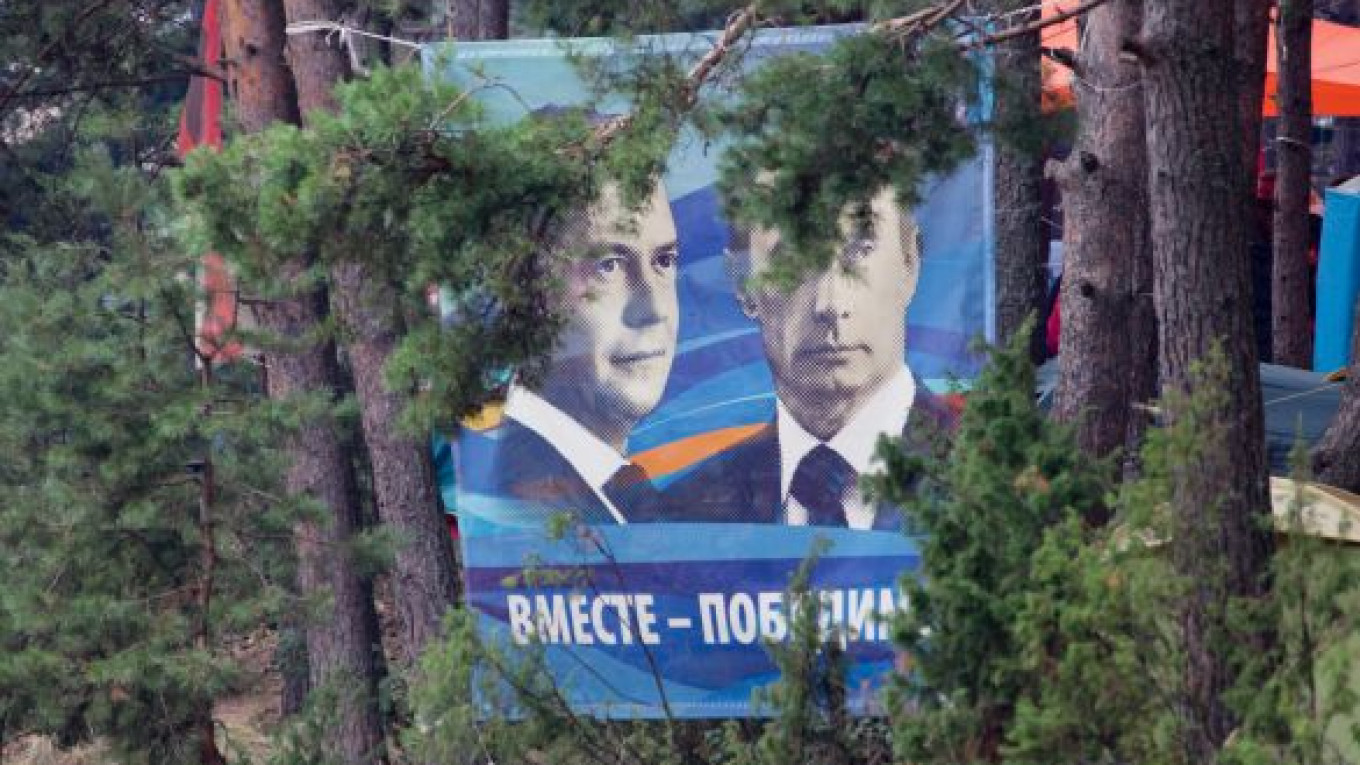Opposition leaders could make an appearance at the pro-Kremlin Seliger youth camp this year, profiting from organizers' invitation to attract young followers to their ranks.
"Not all those who travel to Seliger are hard-boiled United Russia or Nashi fans," Left Front leader Sergei Udaltsov told Izvestia, referring to the ruling party backed by President Vladimir Putin and a youth organization with Kremlin ties.
"There are different people there. There's something to discuss with them. Why would we simply duck out of the fight and leave these young guys to fall prey to Kremlin propagandists," Udaltsov added.
The Seliger camp, first started as a Nashi youth camp in 2005, has been controversial from the outset.
In 2010 camp leaders sparked outrage when members of Nashi's radical wing Stal offered an exhibit that featured portraits of former U.S. Secretary of State Condoleezza Rice, human rights leader Lyudmila Alexeyeva and opposition leader Boris Nemtsov mounted on stakes and wearing hats with swastikas.
But despite the camp's reputation, Ilya Ponomaryov, a Duma deputy with the social-democratic Just Russia party, agreed with Udaltsov that there is much for the opposition to gain in attending the Seliger event.
"I have absolutely no objection to it [attending Seliger]. I am for dialogue in any setting, so long as it's not imitation," Ponomaryov told Izvestia.
"There have been cases when even Nashi commissars have poured into our movement and joined the ranks of the opposition," he said.
Blogger Dmitry Ternovsky, who will lead the socio-political session at this year's Seliger camp, is behind the idea to invite protest leaders. Ternovsky wrote on his LiveJournal that camp organizers gave him a carte blanche to rework the session entirely.
Civic protests, police, honest elections, corruption and interethnic conflict are among the themes being considered for the session, he wrote.
"They invited me on the basis that I could change everything, do everything that I want. Now that they're ready for that, I myself will completely determine the program," Ternovsky told Izvestia.
A Message from The Moscow Times:
Dear readers,
We are facing unprecedented challenges. Russia's Prosecutor General's Office has designated The Moscow Times as an "undesirable" organization, criminalizing our work and putting our staff at risk of prosecution. This follows our earlier unjust labeling as a "foreign agent."
These actions are direct attempts to silence independent journalism in Russia. The authorities claim our work "discredits the decisions of the Russian leadership." We see things differently: we strive to provide accurate, unbiased reporting on Russia.
We, the journalists of The Moscow Times, refuse to be silenced. But to continue our work, we need your help.
Your support, no matter how small, makes a world of difference. If you can, please support us monthly starting from just $2. It's quick to set up, and every contribution makes a significant impact.
By supporting The Moscow Times, you're defending open, independent journalism in the face of repression. Thank you for standing with us.
Remind me later.






